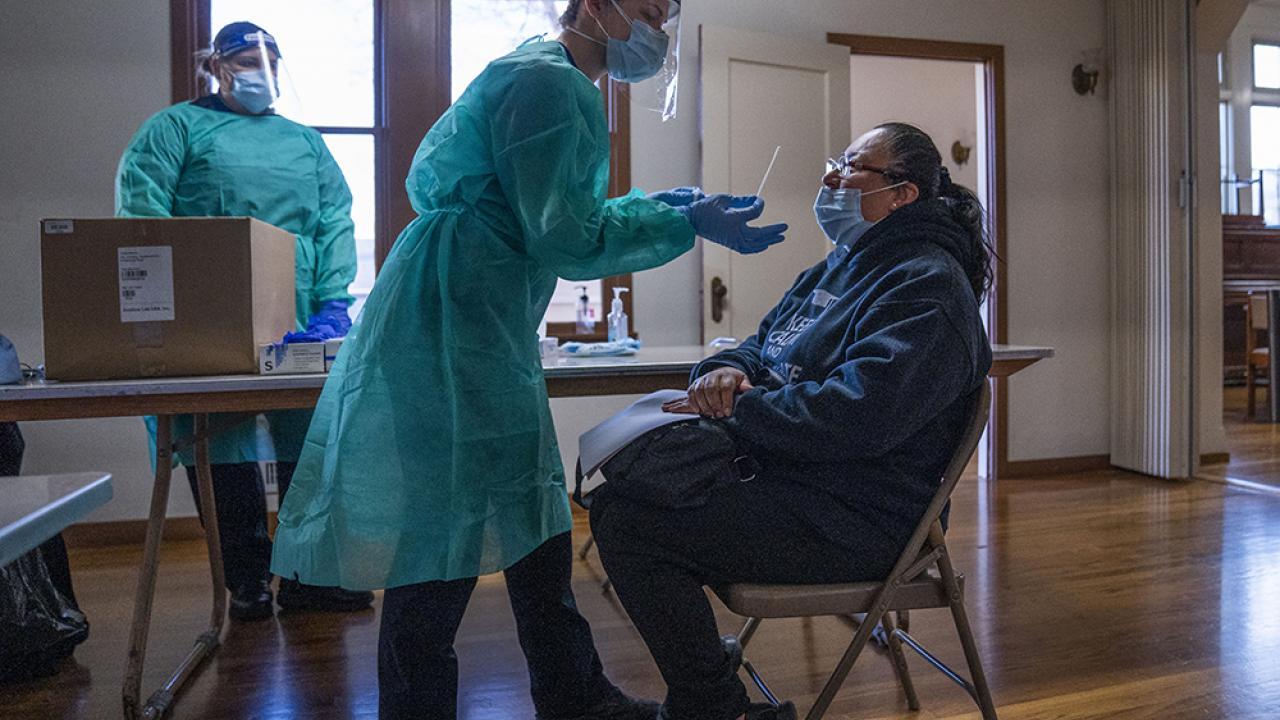
California expands access to COVID-19 testing to help communities open safely
Originally posted by Diane Nelson, UC Davis College of Agricultural and Environmental Sciences
Testing employees with and without COVID-19 symptoms is an important part of California’s pandemic control strategy, even as more people become vaccinated. To make testing easier, employers, schools and community groups can team up with the California Department of Public Health to provide fast, on-site testing with little or no cost to local groups.
“This will help increase testing capacity, reduce turnaround time and promote workplace safety throughout California,” said Heather Riden, program director of the Western Center for Agricultural Health and Safety at the University of California, Davis.
To support local testing programs, the state will provide test kits, registration software, test processing and technical assistance. Employers and community groups provide the physical space for testing, outreach to participants and staff to handle on-site logistics.
Employers and other community groups will be able to administer and process rapid tests on site, and deliver results within 15 to 30 minutes. If someone tests positive or is showing symptoms of COVID-19, the state can help confirm the presence of the virus with a follow-up test through its Valencia Branch Laboratory.
Offering COVID-19 testing to exposed workers is a requirement of the Cal/OSHA COVID-19 Prevention Emergency Temporary Standard. Like other community testing sites, this comprehensive partnership can offer a reliable and efficient way for employers to meet those guidelines.
The state recommends regular testing for essential workers who spend a lot of time with the public, such as people who work in health care, public safety, agriculture, food service, retail, transportation and education. Rapid testing should be conducted at least twice a week in order to diagnose, isolate and treat COVID-19.
“Testing is not a substitute for wearing a mask, quarantining when you’ve been exposed to someone with COVID and maintaining physical distance from others,” said Riden. “But it’s an important component of assuring public safety. Making tests easier to administer with quicker results will help employers and community groups better serve farmworkers and other essential workers.”
Learn more about COVID testing resources by visiting the Valencia Branch Lab website, reviewing the process, or submitting an interest form. You may also address questions to the California Testing Taskforce at testing.taskforce@state.ca.gov
Media contact(s)
- Diane Nelson, UC Davis College of Agricultural and Environmental Sciences, 209-480-7445, denelson@ucdavis.edu
- Heather Riden, UC Davis Western Center for Agricultural Health and Safety, heriden@ucdavis.edu
- Alexi Haack, California Department of Food and Agriculture, Alexi.Haack@cdfa.ca.gov
This article was created with support from the WCAHS COVID-19 Statewide Agriculture and Farmworker Education (SAFE) program funded by the California Labor and Workforce Development Agency (LWDA).
